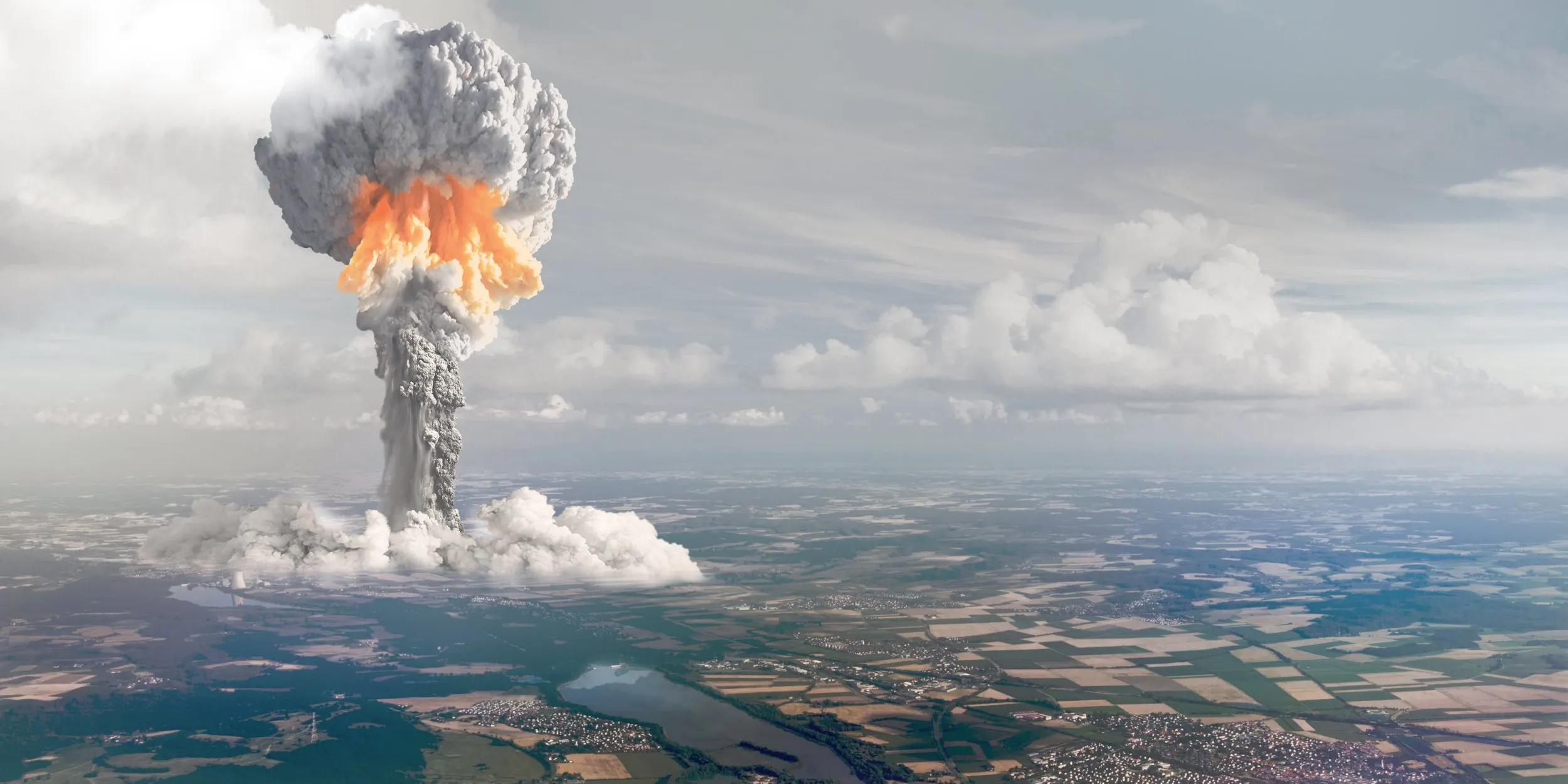World War III: Amidst the backdrop of escalating tensions between Russia and Ukraine, the specter of a potential nuclear World War III looms ominously over the international community. The ongoing conflict, which has been characterized by military build-ups, territorial disputes, and diplomatic standoffs, has raised concerns about the possibility of a catastrophic escalation with global ramifications.
At the heart of the crisis lies the long-standing geopolitical rivalry between Russia and the West, exacerbated by Ukraine’s strategic significance as a buffer state between Russia and NATO member countries. Russia’s annexation of Crimea in 2014 and its support for separatist movements in eastern Ukraine have fueled tensions and led to a series of confrontations between Russian and Ukrainian forces.
The recent deployment of Russian troops near the Ukrainian border and in Crimea, coupled with inflammatory rhetoric from Moscow, has raised fears of a potential military invasion or further aggression against Ukraine. In response, Western countries, including the United States and members of the European Union, have condemned Russia’s actions and imposed economic sanctions, heightening the risk of a broader confrontation.
Amidst the conventional military posturing and diplomatic maneuvering, the specter of nuclear conflict looms large. Both Russia and NATO possess significant nuclear arsenals, and any miscalculation or escalation could potentially trigger a devastating nuclear exchange with catastrophic consequences for humanity.
The situation is further complicated by the involvement of other global powers, including China, which has expressed support for Russia’s actions and called for a peaceful resolution to the crisis. The possibility of a wider conflict involving multiple actors with competing interests adds another layer of uncertainty to an already volatile situation.
Against this backdrop, the international community faces a critical challenge in finding a peaceful and diplomatic resolution to the crisis. Efforts to de-escalate tensions and engage in dialogue must be prioritized to prevent further escalation and mitigate the risk of a catastrophic conflict.
However, achieving a peaceful resolution will require diplomatic finesse, compromise, and a willingness to address the underlying grievances and security concerns of all parties involved. International organizations such as the United Nations and diplomatic channels must be utilized to facilitate dialogue and negotiation, while also upholding principles of sovereignty, territorial integrity, and respect for international law.
Ultimately, the specter of nuclear World War III serves as a stark reminder of the existential threats posed by geopolitical conflicts in the modern era. As the world watches anxiously, the imperative for diplomacy, restraint, and collective action has never been greater in averting the potentially catastrophic consequences of a nuclear conflagration.
In recent years, geopolitical tensions have been on the rise, sparking concerns about the possibility of a global conflict. As countries engage in strategic rivalries, territorial disputes, and military build-ups, some observers fear that the world may be inching closer to another world war. Let’s examine the factors contributing to these escalating tensions and the implications for global stability.
- Rising Power Competition: One of the primary drivers of geopolitical tensions is the intensifying competition among major powers for influence and dominance on the world stage. The rivalry between the United States and China, often characterized as a new Cold War, has led to increased tensions in areas such as trade, technology, and military presence in the Indo-Pacific region. Similarly, tensions between Russia and Western nations have flared over issues like Ukraine, Crimea, and interference in domestic affairs.
- Territorial Disputes and Regional Conflicts: Numerous territorial disputes and regional conflicts around the world have the potential to escalate into larger-scale confrontations. In the South China Sea, competing territorial claims among countries like China, Vietnam, the Philippines, and others have raised concerns about military confrontations and maritime disputes. In the Middle East, ongoing conflicts in Syria, Yemen, and the Israeli-Palestinian conflict continue to fuel instability and regional tensions.
- Nuclear Proliferation and Arms Race: The proliferation of nuclear weapons and the modernization of military arsenals by various countries have heightened fears of a potential arms race and the risk of nuclear conflict. Tensions between nuclear-armed states, such as the United States, Russia, China, India, Pakistan, and North Korea, pose a significant threat to global security, especially if diplomatic channels fail to mitigate tensions and prevent miscalculations.
- Cyber Warfare and Hybrid Threats: In addition to conventional military threats, the proliferation of cyber warfare capabilities and hybrid tactics pose new challenges to international security. State-sponsored cyber attacks, disinformation campaigns, and sabotage operations targeting critical infrastructure, government institutions, and private enterprises have the potential to destabilize societies and escalate tensions between nations.
- Regional Instability and Failed States: The presence of fragile states, weak governance structures, and ongoing conflicts in regions like the Middle East, Africa, and Russia exacerbate geopolitical tensions and create fertile ground for extremist ideologies, terrorism, and proxy wars. The spillover effects of regional instability can have far-reaching consequences and draw major powers into conflicts through alliances and strategic interests.
While the prospect of a third world war remains a deeply concerning possibility, it is essential to recognize the complex and multifaceted nature of contemporary geopolitical dynamics. Diplomatic efforts, dialogue, and multilateral cooperation are crucial for de-escalating tensions, preventing conflicts, and promoting peace and stability on a global scale. As the world navigates through these challenging times, collective action and a commitment to international norms and institutions are paramount in averting the catastrophic consequences of global conflict.
Shayne Heffernan









